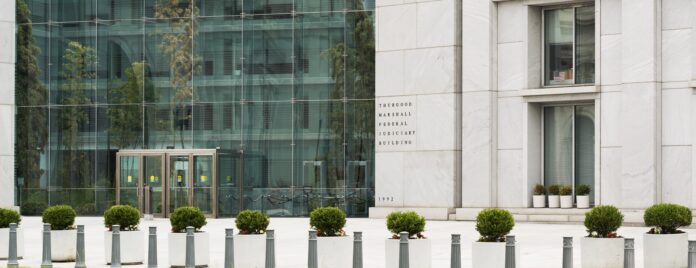The new policy implemented by the federal judiciary to address judge shopping seems to overlook the specific types of cases that prompted Chief Justice John Roberts to address the issue initially.
The Judicial Conference revealed the policy on March 12, aiming to limit litigants’ ability to choose judges in certain cases. The policy involves randomizing the assignment of lawsuits that involve seeking to bar or mandate state or federal actions.
The policy change is expected to make it more difficult to hand-pick judges in contentious cases targeting federal laws and regulations, such as a recent lawsuit challenging the FDA’s authorization of the abortion pill mifepristone in Amarillo, Texas. However, the policy does not seem to address patent or bankruptcy litigation, where venue shopping has also faced criticism, according to legal experts.
“This issue initially arose in patent cases but then transitioned to politically charged cases and has not looked back since,” said David Taylor, a former litigator teaching patent law at SMU Dedman School of Law in Dallas.
The focus on judge shopping began with patent litigation when complaints were raised by tech industry giants and senators about patent owners filing numerous suits in specific venues in Texas. This resulted in a significant portion of the nation’s patent cases being handled by specific judges in Marshall and Waco.
The Judicial Conference’s new policy, as outlined, does not address venue shopping in patent or bankruptcy cases, according to legal experts and a federal appeals court judge.
Some critics have raised concerns that the emphasis on judge shopping in national injunction cases could politicize the issue. They note that Republican attorneys general and right-leaning groups are more likely to engage in judge shopping compared to left-leaning groups.
Conservative Judge James Ho of the US Court of Appeals for the Fifth Circuit questioned the sincerity of efforts to address judge shopping in political cases, urging attention to concerns in bankruptcy and patent dockets.
Separate Guidance
The Administrative Office of the US Courts confirmed that separate guidance would be issued to all district courts in the country along with the policy. This guidance will address case assignment practices in various civil litigations.
The specifics of this guidance and whether it will extend beyond the policy described in the Judicial Conference release remain unclear.
“Perhaps the guidance will delve deeper,” suggested Joshua Landau, senior counsel at the Computer and Communications Industry Association. He expressed concerns that the concerns voiced by senators Leahy and Tillis were not adequately addressed based on the news release.
The effort to tackle judge shopping, which originated in patent cases, is said to be evolving, with ongoing study on how it relates to bankruptcy courts.
While some attorneys prefer a system where patent cases can be brought before judges with technical expertise, others criticized the randomization order implemented in the Western District that targeted a specific judge.
Tom M. Melsheimer, managing partner at Winston & Strawn LLP’s Dallas office, commended the focus of the Judicial Conference on political cases rather than nationalizing the randomization of patent case assignments.
“Patent litigation is a highly specialized area of law, and many judges prefer not to handle such cases,” Melsheimer added.
